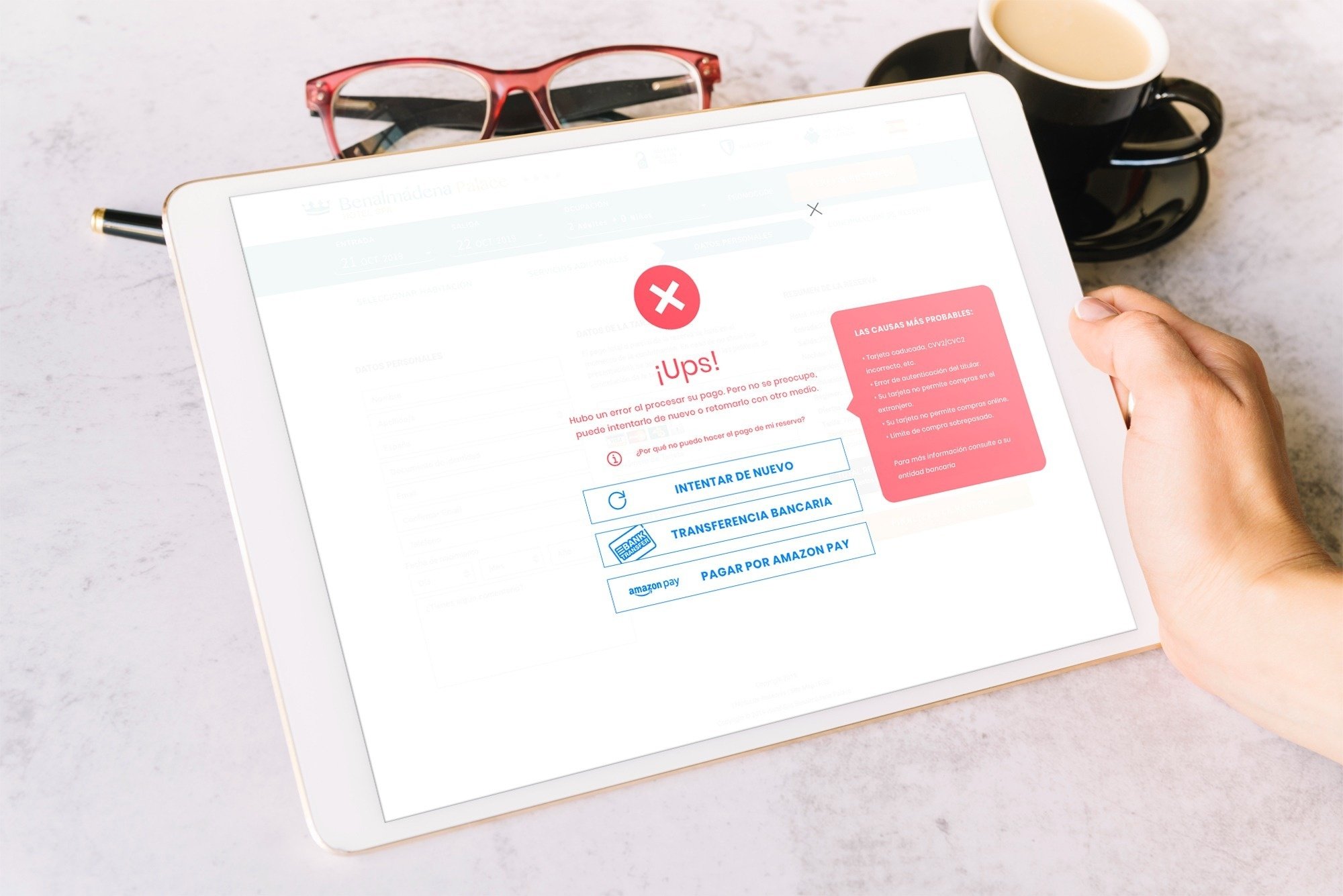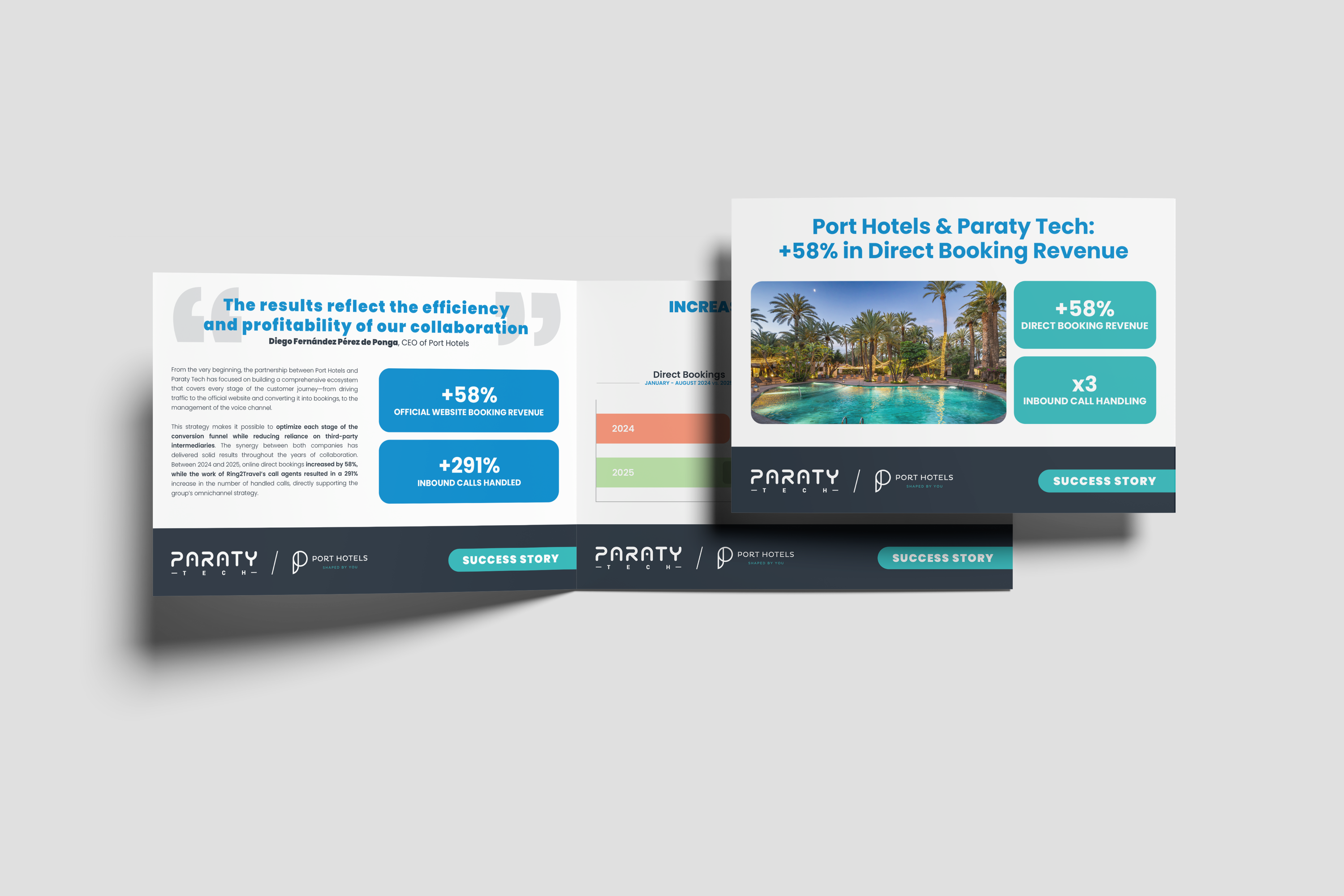Turn the PSD2 regulation into a strength and prevent it from affecting the conversion
Revenue 12/11/2019
Evil for many, consolation for fools... We blindly cling to easy sayings when we are forced to face processes such as the entry into force of the RGPD at the time, or the recent implementation of the PSD2 regulations today. We try to find shelter in phrases like things happen for a reason or changes are for the better, while we manage to comply, in fits and starts, with all the demands imposed on us, within the established deadlines.
But the truth is that, contrary to many predictions, time proves these seemingly empty popular expressions right. As we already saw in the article we published in this regard, today we know that, thanks to that cleaning and optimization of the databases, our clients' newsletters are much more effective now than in the pre-GDPR era.
What if adapting to double authentication actually represented a new opportunity to differentiate yourself and generate positive disparities that help boost your direct sales, to the detriment of OTAs and your competitors? At Paraty Tech we firmly defend that this phenomenon, far from constituting another barrier that will negatively affect conversion (as some insist on making us believe in order to get a profit), marks a turning point in terms of facilities and modalities. payment that you make available to your users on your official website. It's time to make a move, to catch up by taking a qualitative leap, and to do it quickly.
The rational argument behind the regulations justifies its implementation as a way to reduce the high cost of online fraudulent operations (more than 18 million euros in 2017). The standardization of authentication processes in online payment transactions will presumably come hand in hand with technological harmonization and neutrality, as well as the establishment of a common regulatory framework, which should translate into greater security for banking, for the consumer and for the merchant.
Now, while card issuers, acquirers (financial institutions) and users clarify and catch up, you can decide between two options:
Payment gateway for all types of reservations : we will not return to the well-known importance of having a payment gateway integrated with the reservation engine of your hotel's website. However, if your thing is to abide by the rules of the game to the last consequences, what you can encourage is that, even in flexible reservations, the credit card data is collected through the gateway, using the famous double authentication to validate it. This is what is known as tokenization. This will avoid problems when it comes time to make charges later, due to late cancellations, for example, or no-shows.
If this alternative does not convince you, with the Paraty Tech booking engine you can also configure what percentage of the total price, or what number of nights, your clients must pay at the time of booking, and also do so according to a date range. For example, 100% in high season, 30% in low season. In this way you will also be forcing the user to undergo double authentication, but you will compensate for this procedure with good payment conditions. That way you all win.
In the traditional way, you can continue making the payment manually as you have been doing until now. Of course, you will have to commit the mischief of putting the dataphone in MO-TO mode (Mail Order – Telephone Order, in which PSD2 does not apply), although you will never stop being exposed to a, more than likely, return by from your client, knowing that their card has not been validated through an SCA (Strong Customer Authentication) process.
The more payment platforms, the easier it is for your customer : there are more and more payment platforms available, and both their acceptance and the degree of trust they arouse are growing relentlessly. From the oldest to the most recent, all of them will provide added value to your hotel, making it easier for your potential clients and, therefore, promoting greater conversion. At Paraty Tech we are already integrated, or immersed in the full integration process, with:
Payment by bank transfer : there is still a profile of travelers who show reluctance when it comes to providing their credit card information, whether online or by phone. For all of them, payment by bank transfer is usually presented as the most desirable option.
Our booking engine has long made available to our clients the possibility of establishing this payment method as optional. In fact, we have not stopped working on the development of this functionality until we have brought its configuration parameters to a maximum level of customization. Currently you can:
Popups with alternative payment methods when the gateway fails : transactions via payment gateway can fail and, when this happens, you must be there. First, to inform your client of the reason for the system's refusal, and then, to offer alternative payment methods.
We have implemented a type of popup that pops up exclusively when an incident arises, showing a list of the possible causes that caused it and providing buttons to try again (correcting a hypothetical human error), pay by bank transfer or select another method. payment, respectively.
Reservations without a credit card : ensuring face-to-face payment is also an effective way to avoid PSD2, since physical presence is valid as a form of authentication in itself. It may not be a valid option for all booking profiles, but the most lagging travelers may find this payment method an incentive when it comes time to take advantage of, for example, last minute offers. Adding a timely release to this functionality will help you better control from what time and until what time it will be available.
Link to complete the payment, or a portion of it, via pre-stay email : to leave everything tied up before your client's arrival at the hotel, if he opted for a flexible reservation, you can invite him to complete the payment, or to pay the possible costs associated with a hypothetical cancellation, sending you a link that redirects you to the gateway. Taking advantage of a pre-stay email seems like a good choice. This way you will avoid possible complications when you want to charge them manually through the dataphone.
In short, it is clear that, apparently, the easy thing would be to leave everything in the hands of others and continue operating as you have been doing to date. As long as they let you, let the banks adapt, let the OTAs adapt, right? But it is precisely this attitude of passivity that carries serious risks. Of course, all banking partners will end up doing their homework and modify their payment gateways to adapt to the PSD2 regulations and you will be partially covered there. However, giving in to the disinterested recommendations of OTAs, who will surely invite you to stop worrying about everything and leave this matter in their hands, is more delicate. Giving them full control over charges, just for convenience, is opening the door to disparities and increased commissions. It is convenient to recover the phrase, and apply the story, of the brilliant Giuseppe Tomasi di Lampedusa, who said that “if we want everything to remain as it is, it is necessary for everything to change.”
But the truth is that, contrary to many predictions, time proves these seemingly empty popular expressions right. As we already saw in the article we published in this regard, today we know that, thanks to that cleaning and optimization of the databases, our clients' newsletters are much more effective now than in the pre-GDPR era.
What if adapting to double authentication actually represented a new opportunity to differentiate yourself and generate positive disparities that help boost your direct sales, to the detriment of OTAs and your competitors? At Paraty Tech we firmly defend that this phenomenon, far from constituting another barrier that will negatively affect conversion (as some insist on making us believe in order to get a profit), marks a turning point in terms of facilities and modalities. payment that you make available to your users on your official website. It's time to make a move, to catch up by taking a qualitative leap, and to do it quickly.
6 WAYS TO TAKE ADVANTAGE OF PSD2 TO PROMOTE CONVERSION
The rational argument behind the regulations justifies its implementation as a way to reduce the high cost of online fraudulent operations (more than 18 million euros in 2017). The standardization of authentication processes in online payment transactions will presumably come hand in hand with technological harmonization and neutrality, as well as the establishment of a common regulatory framework, which should translate into greater security for banking, for the consumer and for the merchant.
Now, while card issuers, acquirers (financial institutions) and users clarify and catch up, you can decide between two options:
- Do nothing for the moment, waiting to see how the sector breathes as the different players involved modify their platforms.
- Take the initiative, be one of the first to take the leap, differentiate yourself, and resolve setbacks (if they arise) as you go.
Payment gateway for all types of reservations : we will not return to the well-known importance of having a payment gateway integrated with the reservation engine of your hotel's website. However, if your thing is to abide by the rules of the game to the last consequences, what you can encourage is that, even in flexible reservations, the credit card data is collected through the gateway, using the famous double authentication to validate it. This is what is known as tokenization. This will avoid problems when it comes time to make charges later, due to late cancellations, for example, or no-shows.
If this alternative does not convince you, with the Paraty Tech booking engine you can also configure what percentage of the total price, or what number of nights, your clients must pay at the time of booking, and also do so according to a date range. For example, 100% in high season, 30% in low season. In this way you will also be forcing the user to undergo double authentication, but you will compensate for this procedure with good payment conditions. That way you all win.
In the traditional way, you can continue making the payment manually as you have been doing until now. Of course, you will have to commit the mischief of putting the dataphone in MO-TO mode (Mail Order – Telephone Order, in which PSD2 does not apply), although you will never stop being exposed to a, more than likely, return by from your client, knowing that their card has not been validated through an SCA (Strong Customer Authentication) process.
The more payment platforms, the easier it is for your customer : there are more and more payment platforms available, and both their acceptance and the degree of trust they arouse are growing relentlessly. From the oldest to the most recent, all of them will provide added value to your hotel, making it easier for your potential clients and, therefore, promoting greater conversion. At Paraty Tech we are already integrated, or immersed in the full integration process, with:
- Redsys
- Amazon Pay
- Bizum
- PayPal
- Addon Payment
- Universal Pay
- Sequra
- PlaceToPay
- PayJP
- Redunicre
- PayU
- Book&Pay
- SIBS
Payment by bank transfer : there is still a profile of travelers who show reluctance when it comes to providing their credit card information, whether online or by phone. For all of them, payment by bank transfer is usually presented as the most desirable option.
Our booking engine has long made available to our clients the possibility of establishing this payment method as optional. In fact, we have not stopped working on the development of this functionality until we have brought its configuration parameters to a maximum level of customization. Currently you can:
- Set the number of days to make payment from the reservation date
- Set the number of days to make payment before your arrival date
- Configure the percentage of the total price to be paid via bank transfer
- Configure all the previous parameters, according to a date range.
Popups with alternative payment methods when the gateway fails : transactions via payment gateway can fail and, when this happens, you must be there. First, to inform your client of the reason for the system's refusal, and then, to offer alternative payment methods.
We have implemented a type of popup that pops up exclusively when an incident arises, showing a list of the possible causes that caused it and providing buttons to try again (correcting a hypothetical human error), pay by bank transfer or select another method. payment, respectively.
Reservations without a credit card : ensuring face-to-face payment is also an effective way to avoid PSD2, since physical presence is valid as a form of authentication in itself. It may not be a valid option for all booking profiles, but the most lagging travelers may find this payment method an incentive when it comes time to take advantage of, for example, last minute offers. Adding a timely release to this functionality will help you better control from what time and until what time it will be available.
Link to complete the payment, or a portion of it, via pre-stay email : to leave everything tied up before your client's arrival at the hotel, if he opted for a flexible reservation, you can invite him to complete the payment, or to pay the possible costs associated with a hypothetical cancellation, sending you a link that redirects you to the gateway. Taking advantage of a pre-stay email seems like a good choice. This way you will avoid possible complications when you want to charge them manually through the dataphone.
In short, it is clear that, apparently, the easy thing would be to leave everything in the hands of others and continue operating as you have been doing to date. As long as they let you, let the banks adapt, let the OTAs adapt, right? But it is precisely this attitude of passivity that carries serious risks. Of course, all banking partners will end up doing their homework and modify their payment gateways to adapt to the PSD2 regulations and you will be partially covered there. However, giving in to the disinterested recommendations of OTAs, who will surely invite you to stop worrying about everything and leave this matter in their hands, is more delicate. Giving them full control over charges, just for convenience, is opening the door to disparities and increased commissions. It is convenient to recover the phrase, and apply the story, of the brilliant Giuseppe Tomasi di Lampedusa, who said that “if we want everything to remain as it is, it is necessary for everything to change.”


















